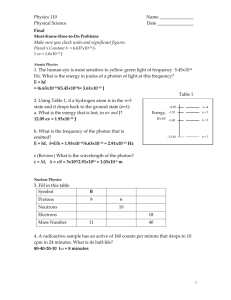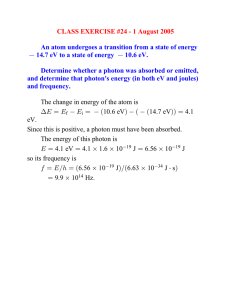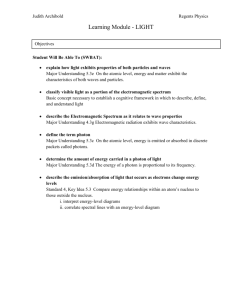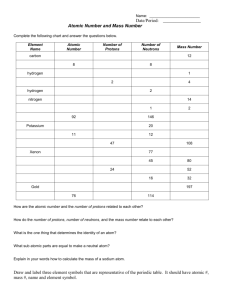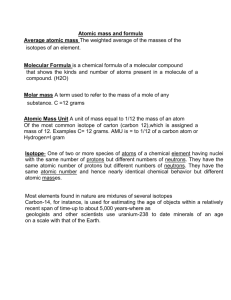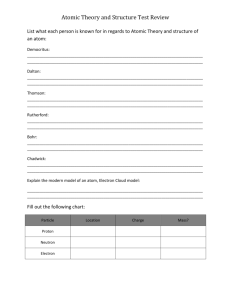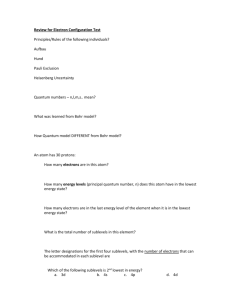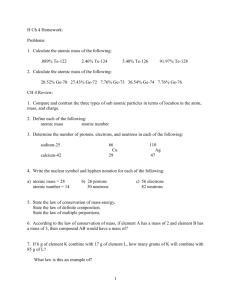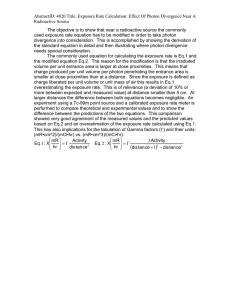PSmustknowFinal
advertisement
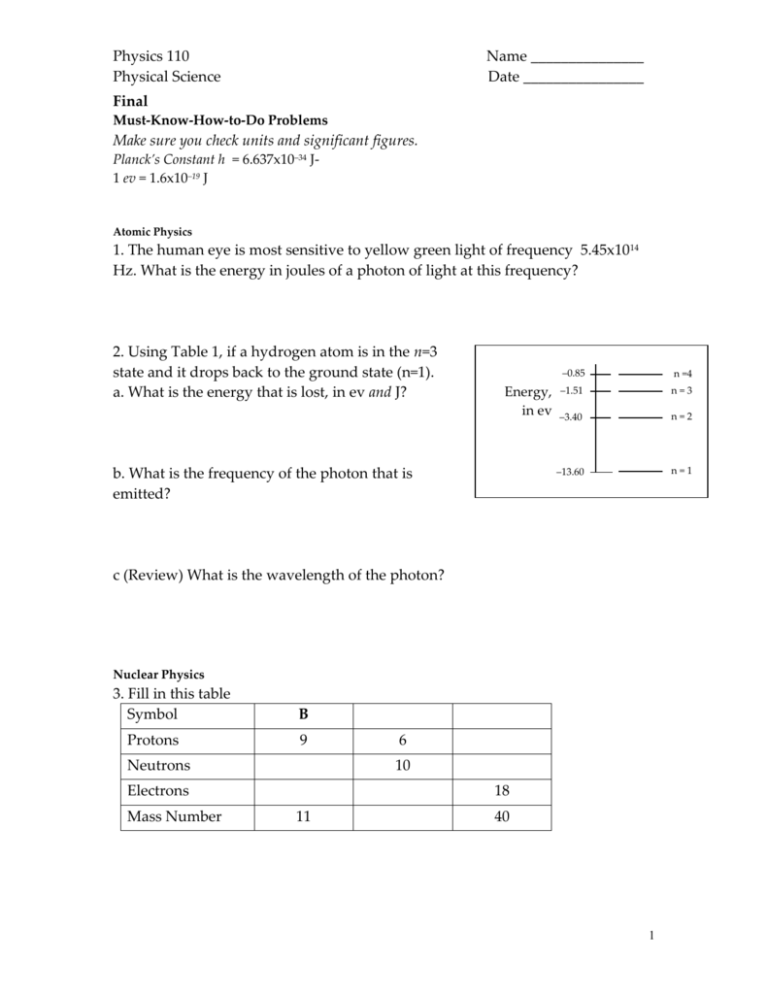
Physics 110 Physical Science Name _______________ Date ________________ Final Must-Know-How-to-Do Problems Make sure you check units and significant figures. Planck’s Constant h = 6.637x10–34 J1 ev = 1.6x10–19 J Atomic Physics 1. The human eye is most sensitive to yellow green light of frequency 5.45x1014 Hz. What is the energy in joules of a photon of light at this frequency? 2. Using Table 1, if a hydrogen atom is in the n=3 state and it drops back to the ground state (n=1). a. What is the energy that is lost, in ev and J? Energy, in ev b. What is the frequency of the photon that is emitted? –0.85 n =4 –1.51 n=3 –3.40 n=2 –13.60 n=1 c (Review) What is the wavelength of the photon? Nuclear Physics 3. Fill in this table Symbol Protons B 9 Neutrons 10 Electrons Mass Number 6 18 11 40 1 Physics 110 Physical Science Name _______________ Date ________________ 4. A radioactive sample has an active of 160 counts per minute (cpm) that drops to 5 cpm in 32 minutes. What is its half-life? 5. Complete the following nuclear reaction equations: 4 14 17 2 He 7 N 8 O _______ 1 0 28 n 14 Si _______ 11H 8 5 B _______ 10 e What is the particle 0 1 e called when emitted in radioactive decay? 210 84 Po 206 82 Pb ______ 6. 238 92 What is the emitted particle called? U has how many neutrons? Chemistry 7. Which of these atomic elements has the greatest atomic size? a. lithium (Li) b. fluorine (F) c. potassium (K) d. bromine (Br) 8. Referring only to a periodic table and recalling the octet rule, give the number of valence electrons expected for a) sulfur (S) b) neon (Ne) c) bromine (Br) d) nitrogen (N) e) carbon (C) 2
